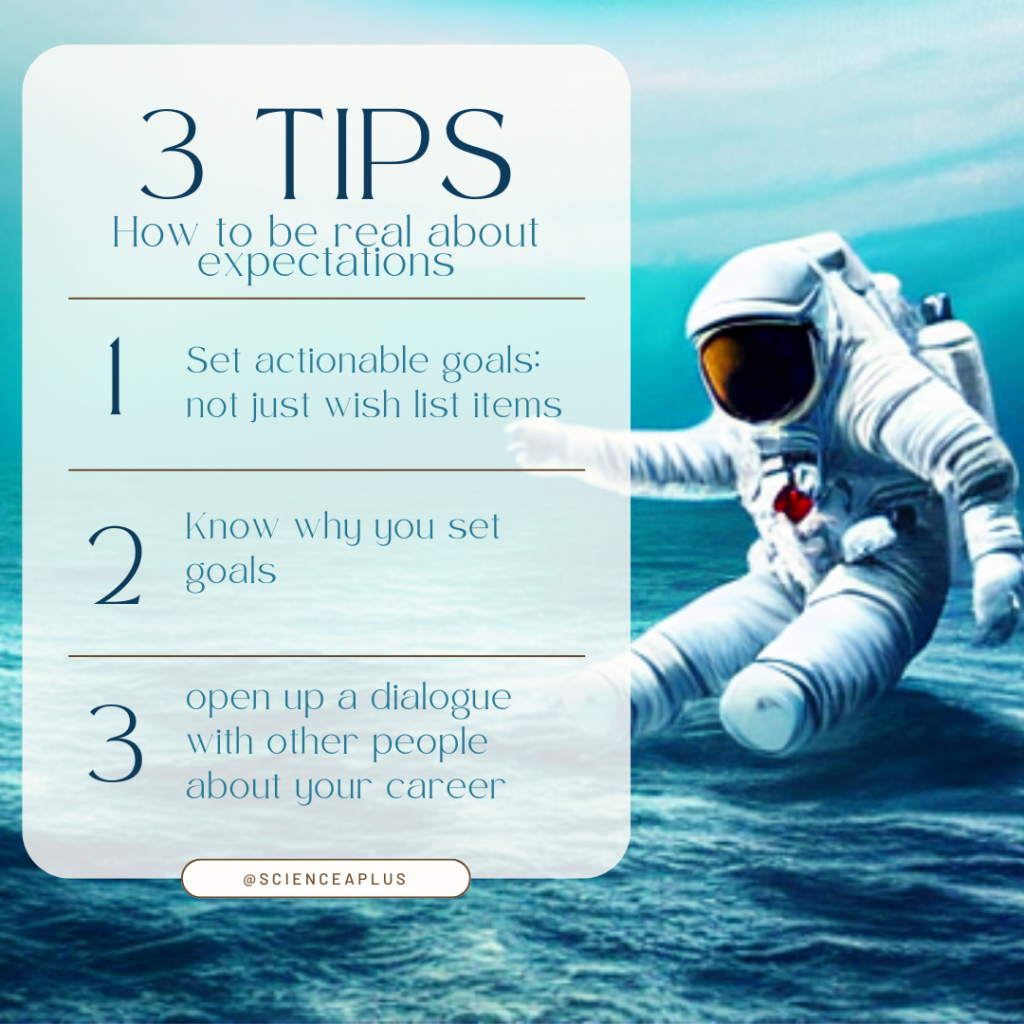Your future self will thank you for setting realistic expectations for yourself. This may seem simple, but oftentimes we set high standards for ourselves that are unrealistic. If you’re like most people, you don’t set specific long-term career goals or limit yourself to a few specific jobs. Instead, you let more general targets and ambitions guide your future career.
If you set goals that are realistic and measure them against what you want rather than what other people expect of you, then there is a good chance that they will be achieved and you won’t feel like a failure when they haven’t come to pass.
What is realistic for you?
This might seem obvious, but so many of us have unrealistic expectations for ourselves that we completely miss the mark. If you have ambitious goals, you probably have a few things right. Here are some things you might consider setting for yourself.
If you have a long-term career goal, you might consider setting a short-term goal to support your larger career objective. For example, if your short-term goal is to be promoted within six months, you might consider setting a longer-term goal to increase your salary by the same amount. If you have a family and children to consider, you might choose to set a short-term goal to help out your family financially. For example, if your short-term goal is to pay your bills and put enough away for your kids’ college education, you might choose to set a longer-term goal to increase your income by the same amount.
It’s important to remember that your short- and long-term goals shouldn’t be contradictory. If you have a long-term career goal, but also a short-term family goal, your short-term family goal might cause you to fall short of your long-term career goal.
What’s reasonable?
It’s easy to get bogged down in setting new, unrealistic expectations. It’s important to remember that everyone has different abilities, goals, and needs. So, while it’s important to be realistic about your expectations, it’s also important to be realistic about your ability to achieve them.
There are many scenarios where setting high expectations for yourself will make sense – like when you’re very young and just starting out in your career or you’re dealing with a serious illness or disability. But for the vast majority of people, setting realistic career goals will have much more benefit than risk.
Set actionable goals: not just wish list items

When you set goals, don’t just list the action items from your list. Set goals that measure against what you want, not what other people expect of you. For example, if you want to be promoted within six months, your top-level goal should be ambitious enough to warrant some serious work on your part. But your bottom-line goal should be realistic enough to measure against.
Know why you set goals
There are many reasons why people set and achieve goals. Some people set goals to expand their knowledge and learn more about different industries or careers. Others set goals with the hope of experiencing rewards or experiencing progress towards their larger career objective.
Some people set goals to improve their self-worth and feel empowered when they achieve them. Others set goals to challenge themselves and push themselves outside their comfort zones.
Don’t be afraid to open up a dialogue with other people about your career/ future goals
There are many instances where you have to be prepared to open up a conversation with other people about your career or future goals. You might not know how to begin the conversation, so just ask a few questions to get you started.
People often have a lot of ideas and advice to give and they’re often willing to share it. You might not be ready to hear it all yet, but that’s perfectly fine. Just be prepared to ask questions and open up a dialogue when you’re ready so that you can get the answers you want and need to make good decisions for your future.
When you’re ready to start talking about your career, open up a dialogue with your friends or colleagues about what you want to do. Be prepared to hear a lot of different ideas and answers. But be prepared to open up the conversation and receive a lot of helpful information, too.
Conclusion
Realistic career goals are key to success, and there’s no point in setting goals that you know you’ll be completely unable to achieve. If you have realistic career goals, you’ll have a much better chance of achieving them.






